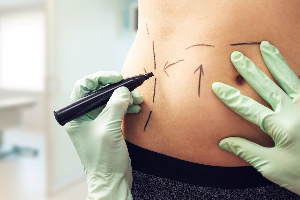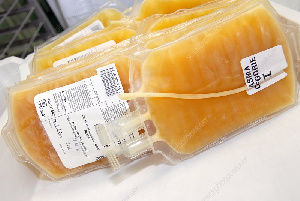What to know If you’re considering liposuction

Liposuction is a cosmetic procedure that removes fat that you can’t seem to get rid of through diet and exercise.
A plastic or dermatologic surgeon usually does the procedure on your hips, belly, thighs, buttocks, back, arms, and under the chin or face to improve their shape. But liposuction can also be done with other plastic surgeries, including facelifts, breast reductions, and tummy tucks.
Am I a Good Candidate?
You’ll want to have realistic expectations. Liposuction won’t get rid of cellulite, so if you hoped you’d come out of surgery without any, you’re out of luck.
Liposuction is a surgical procedure, and with it comes risks. So you need to be in good health before you get it. That means you must at least:
Be within 30% of your ideal weight
Have firm, elastic skin
Not smoke
Doctors don’t recommend the procedure if you have health problems with blood flow or have heart disease, diabetes, or a weak immune system.
What Should I Know Beforehand?
The first step is to consult with your surgeon. Talk about your goals, the options, the risks and benefits, and the costs. Ask all your questions.
If you decide to go ahead with liposuction, your surgeon will give you instructions on how to prepare for it. These may include diet and alcohol restrictions.
Tell your surgeon about any allergies you have and any medications you take, including over-the-counter and herbal supplements. They will likely recommend you stop taking certain meds, such as blood thinners and certain painkillers several weeks before surgery.
What Should I Expect?
Your liposuction may take place at your doctor’s office or a surgery center. Make sure that the place where you’re getting it done is accredited, and is known for its professional standards, safety and good results.
You’ll go home the day of the procedure. Make sure to have someone drive you home afterward. (If you’re having a lot of fat removed, you should get the surgery done in a hospital, where you might stay overnight).
Before your liposuction starts, your doctor might mark the areas of your body that will be treated. They may also take photos to use later for before-and-after comparisons.
Next you’ll get general anesthesia — which means you will not be awake during the procedure — or a “local,” which means you will be awake but not feel any pain.
Types of Liposuction
There are just a few different liposuction techniques. But what they all have in common is the use of a thin tube, called a cannula, connected to a vacuum to suction the fat from your body.
Tumescent liposuction is the most common technique. Your surgeon injects a sterile solution into the area where the fat is to be removed. It consists of saline — which is salt water – along with lidocaine and epinephrine. The solution makes it easier to suction the fat with less blood loss and pain.
Ultrasound-assisted liposuction, or UAL, uses sound wave energy under your skin to rupture the cell walls of the fat. This liquefies the fat so it can be suctioned out.
Laser-assisted liposuction, or SmartLipo, uses a laser to produce a burst of energy to liquefy the fat.
How Long Is Recovery?
You might not have to stay in the hospital depending on the type of surgery you had. But you should expect bruising, swelling, and soreness for at least a few weeks.
Your surgeon may require you to wear a compression garment for 1 to 2 months after surgery to control swelling.
You’ll probably also have to take some antibiotics to prevent infection. Most people can return to work within a few days and get back to normal activities within 2 weeks. But every person is different.
Ask your cosmetic surgeon specific questions about what your recovery will be like, including:
What medications will I need to take?
Will I wear bandages?
Will I have stitches, and when will they be removed?
When can I exercise again?
Do I need to come back for a follow-up visit?
What Are the Risks?
Cosmetic surgery is still surgery, so there are some risks. You can help reduce them by making sure it is done only by a specially trained, board-certified cosmetic surgeon.
There are several possible risks directly related to liposuction that you still have to consider, including:
Bleeding
Complications from anesthesia
Shock (usually from not getting enough fluid during surgery)
Fluid accumulation (pockets of fluid forming under the skin)
Infections (strep, staph)
Fat embolism (when tiny pieces of fat break away and block blood flow)
Burns from instruments
Uneven fat removal
Reactions to lidocaine
Change in skin sensation; numbness
Damage to nerves, blood vessels, muscles, lungs, and abdominal organs
Another risk is a blood clot in your deep veins. Clots can be very dangerous if they travel to other parts of your body, such as your lungs.
Are the Results Permanent?
The fat cells are removed permanently during liposuction. But you can gain weight back, with new fat cells, which usually go to different areas of your body.
To keep your new shape after surgery, follow a diet that includes lots of lean protein, fruits and vegetables, whole grains, and low-fat dairy. And exercise regularly.
Is Liposuction Covered By Health Insurance?
CLICK HERE TO DOWNLOAD PRESS RADIO MOBLE APP

Because liposuction is a cosmetic procedure, most health plans don’t cover it. Talk to your insurance company and your surgeon about the costs and payment options, as well as who pays if you have any complications.
Source: webmd.com





